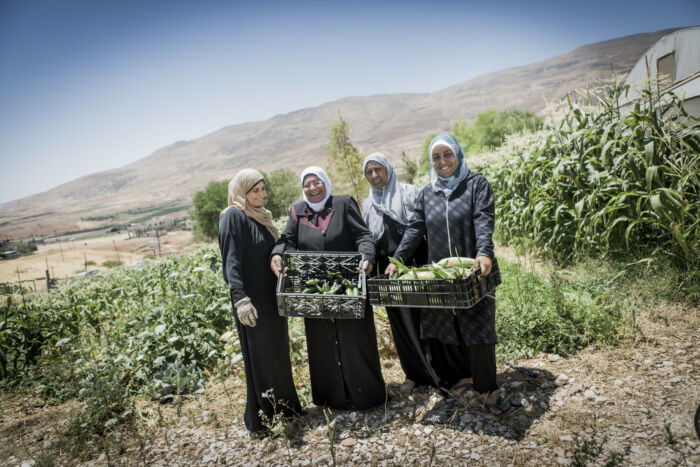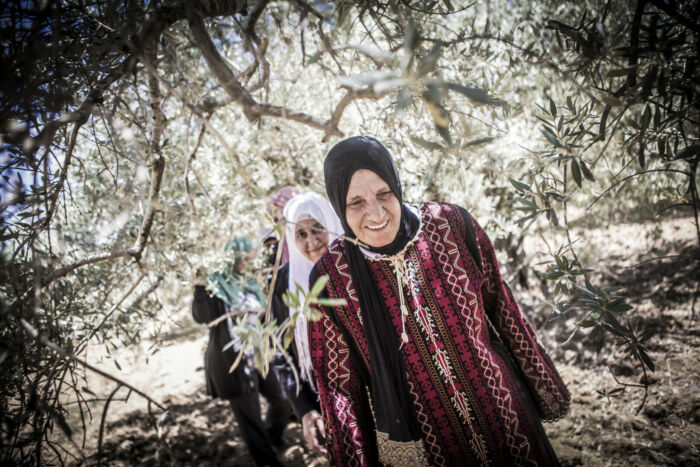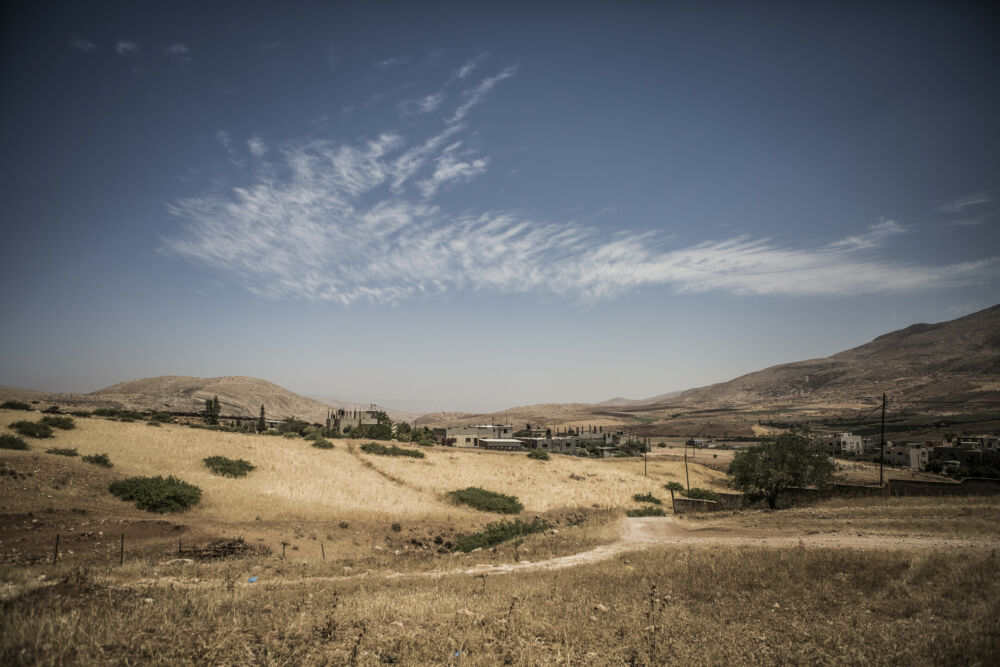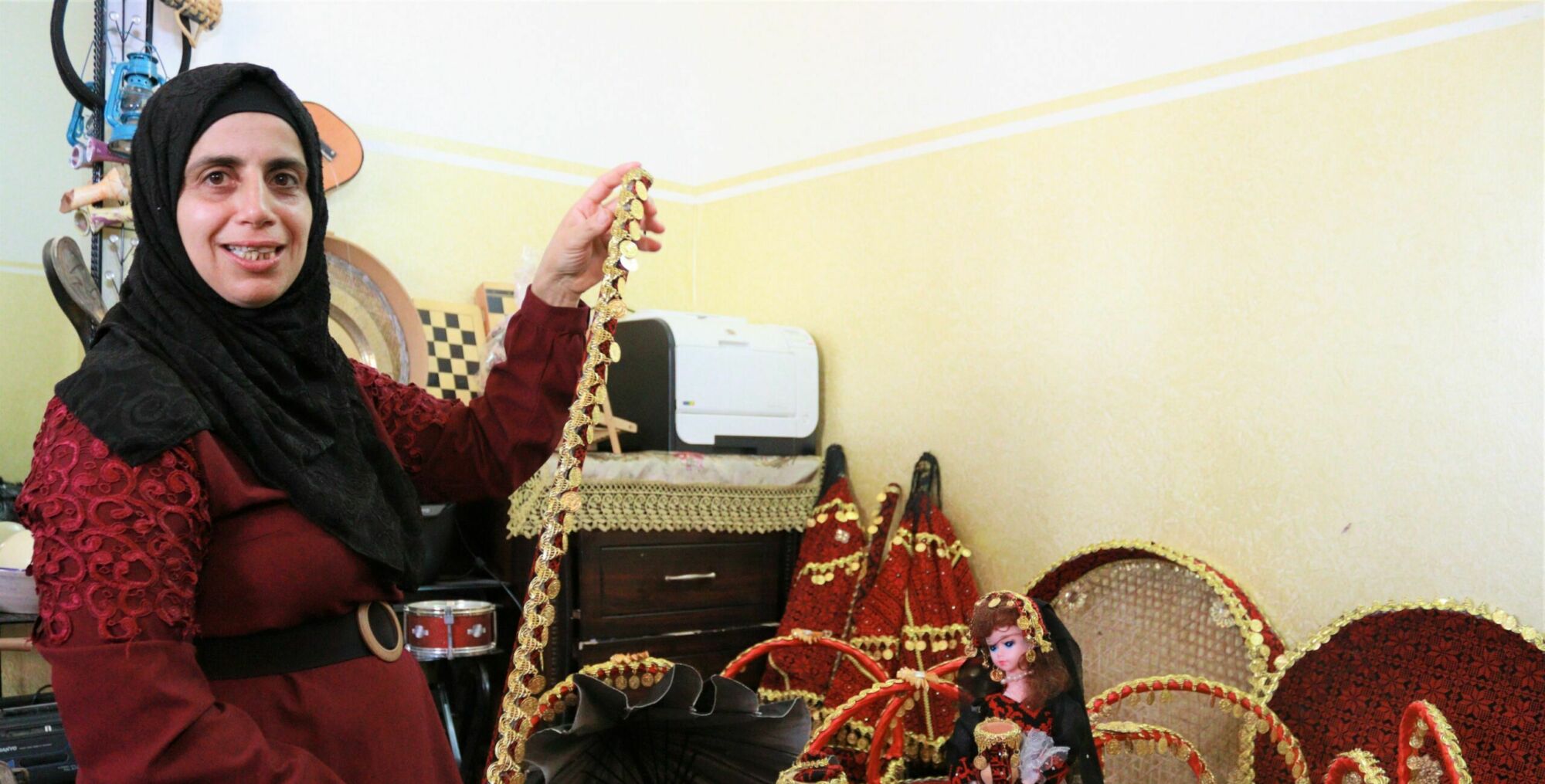Palestine
Palestine is located in the Middle East, comprising the West Bank and the Gaza Strip, each with distinct geographical and political conditions. The population of Palestine is approximately 5 million, with major urban centers including East Jerusalem, Ramallah, and Gaza City.
We Effect has been active in Palestine since 1998. Our support to local organizations uses a broad approach not only related to agricultural development but also as a community development framework, economic empowerment of rural women, diversification of rural economy and access to resources.
Palestine faces a high poverty rate, with about 29.2% of the population living below the poverty line, significantly affecting access to basic services and quality of life. Food insecurity is a critical issue, with 32% of households experiencing inadequate access to food due to economic challenges, movement restrictions, and political instability. The malnutrition rate is also concerning, with 10.3% of children under five suffering from chronic malnutrition, exacerbated by limited access to health services and nutritious food.

Housing issues are prominent, particularly in Gaza, where recurrent conflicts have led to widespread destruction and a significant housing backlog. The recent catastrophic events of conflict have devastated infrastructure and homes, leaving many families in dire need of assistance. Approximately 35% of homes in Gaza require repair or reconstruction, leaving many families in inadequate living conditions. Internal displacement is another severe issue, with around 233,000 internally displaced persons (IDPs) due to ongoing conflicts and demolitions, particularly in the West Bank and Gaza.
Palestine is highly vulnerable to climate change, ranking 120th on the Climate Risk Index. The region faces risks such as water scarcity and extreme weather events, including droughts and flash floods, which further strain already limited resources. The Vulnerability Index is high, reflecting susceptibility to economic, environmental, and social shocks, with key vulnerabilities including dependency on international aid and limited access to natural resources.
Gender inequality remains a significant challenge in Palestine, with the country ranking 115th on the Gender Inequality Index. Women and girls face significant barriers to achieving their full potential, impacting overall development and social stability.

The reason for working in Palestine includes addressing critical issues such as poverty, food insecurity, malnutrition, displacement, climate vulnerability, and gender inequality. Our efforts aim to improve living conditions and resilience among vulnerable populations through integrated programs focusing on health, education, sustainable livelihoods, and emergency response. By addressing these interconnected challenges, we strive to support the people of Palestine in achieving a more stable and prosperous future.
Results in Palestine:
- In 2023, a program in Palestine made significant strides in promoting sustainable farming practices and gender equality. The program directly supported 27,342 individuals, encompassing women, men, youth, and other vulnerable populations. It engaged with 18 cooperatives to promote environmentally friendly techniques and enhance operational capacities. Collaboration with 6 partners, including NGOs and a women’s rights organization, further demonstrated broad support across various entities.
- Specifically, the program empowered 19,584 women by providing access to opportunities, combining efforts for non-youth women (14,844) and youth women (4,740). Moreover, 867 farmers transitioned to organic and climate-resilient farming methods, such as cover cropping, composting, and drip irrigation, aiming to mitigate climate impacts and promote sustainability.
- The program indirectly impacted a total of 101,940 family members through its initiatives, underscoring its significant community-wide influence in promoting sustainable development and gender equality in Palestine.


